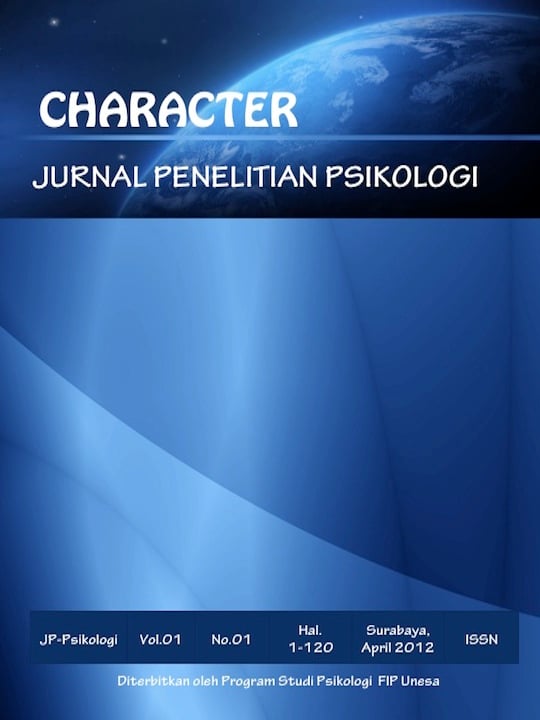GRATITUDE PADA CAREGIVER KELUARGA YANG MERAWAT LANSIA
DOI:
https://doi.org/10.26740/cjpp.v8i3.41209Abstract
Abstrak
Sebagai salah satu syarat kesejahteraan lansia, perawatan lansia kerap dibebankan pada anggota keluarga sebagai caregiver. Merawat lansia tak jarang merupakan beban berat. Gratitude menjadi salah satu faktor yang dapat membantu caregiver menghindari kondisi kewalahan. Riset ini mengkaji dua fenomena: 1) tantangan para caregiver keluarga dalam merawat lansia berketerbatasan fisik, dan 2) gratitude dalam diri mereka sebagai perawat lansia dan peran gratitude dalam membantu mereka menyiasati dan memaknai tantangan tugas perawatan. Dengan berpendekatan studi kasus, riset psikologi kualitatif ini mengolah data yang dikumpulkan dengan teknik wawancara semi-terstruktur. Partisipan penelitian ini adalah dua perempuan yang minimal telah satu tahun merawat lansia berketerbatasan fisik yang tinggal serumah dengan mereka. Ditemukan bahwa dalam merawat lansia, para caregiver ini menghadapi dua tipe tantangan, yaitu objektif dan subjektif. Tantangan objektif mereka mencakup bagaimana menjaga kebersihan pribadi lansia dan memenuhi kebutuhan lansia akan gizi berimbang. Adapun tantangan subjektif mereka adalah campur-aduk emosi terhadap lansia yang mereka rawat, yaitu kesedihan, kejengkelan, dan belas kasihan. Tersingkap pula dalam riset ini bahwa gratitude membantu para caregiver dalam menanggung beban sehari-hari merawat lansia dan menemukan makna di dalamnya. Gratitude mengandung tiga komponen, yaitu sense of abundance, appreciation for others, dan simple appreciation.
Kata kunci: gratitude, caregiver keluarga, lansia
Abstract
Elder care is one of the necessities of life for the elderly to enjoy well-being. Usually, the onus is on families to look after their elderly relatives. A sense of gratitude helps these family carers to avoid physical and mental burnout. Using the case-study approach, this qualitative, psychological research examines the challenges confronting family carers of elderly relatives with physical limitations. The study also explores the role of gratitude in helping the family caregivers to manage and find meaning in the day-to-day challenges of elder care. Semi-structured interviews were conducted with two adult women who had looked after their physically challenged, elderly relatives for more than a year. Analysis of the interview data shows that they were faced with two types of challenges, objective and subjective. Objective challenges included nourishing the elderly and keeping their personal hygiene, while the subjective ones involved the mixed feelings of sorrow, pity, and exasperation toward the elderly under their care. These caregivers exhibited a sense of gratitude, which consisted of a sense of abundance, simple appreciation, and appreciation for others, and which had helped them cope with the daily burden of elderly care.
Keywords: gratitude, family caregiver, elderly
Downloads
Downloads
Published
How to Cite
Issue
Section
License
Authors who publish in this journal agree to the following terms:
Copyright in any article is held by the author.
The author grants the journal, publication rights with the work simultaneously licensed under a Creative Commons Attribution License that allows others to share the work with an acknowledgment of the work's authorship and initial publication in this journal.
Authors may enter into separate, additional contractual arrangements for the non-exclusive distribution of the journal's published version of the work (e.g., posting it to an institutional repository or publishing it in a book), with an acknowledgment of its initial publication in this journal.
Authors are permitted and encouraged to post their work online (e.g., in an institutional repository or on their website) prior to and during the submission process, as this can lead to productive exchanges, as well as earlier and greater citation of published work.
 Abstract views: 857
,
Abstract views: 857
, PDF Downloads: 1021
PDF Downloads: 1021





